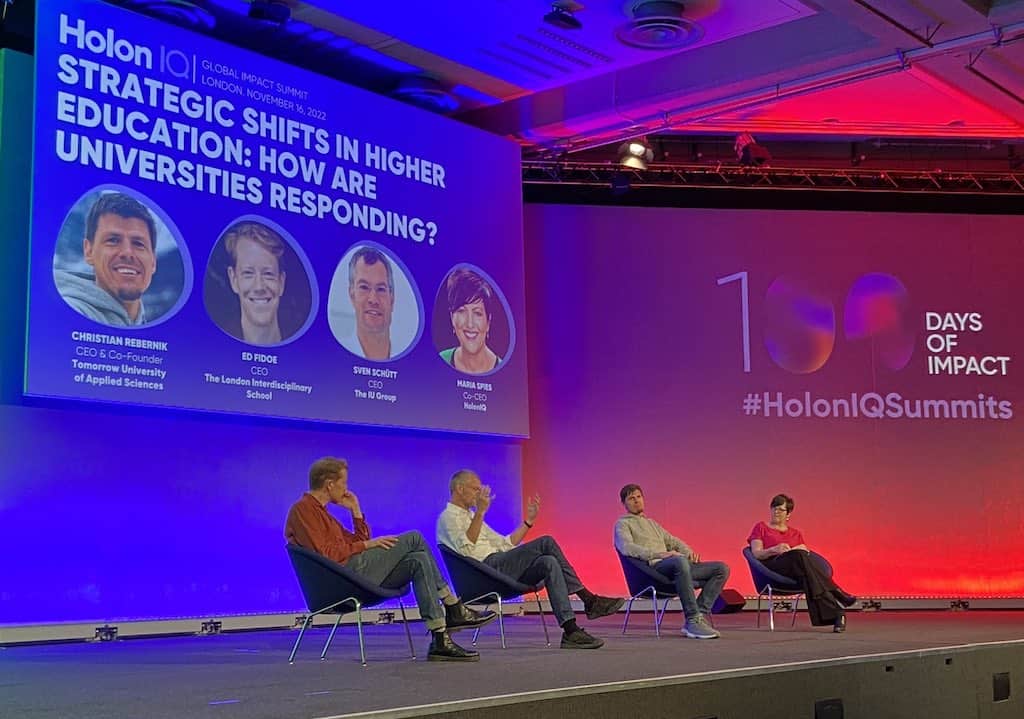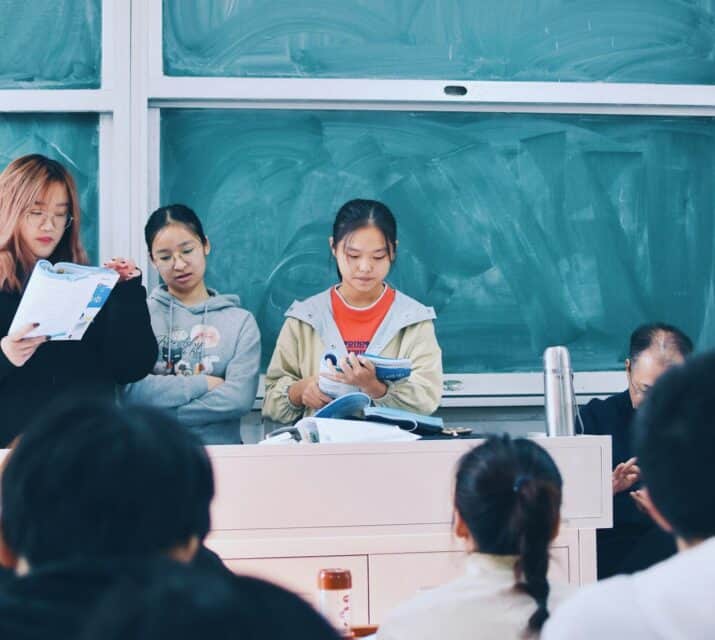The post-secondary education sector needs to shift its focus on employability amid the ongoing skills shortage and “explosive growth” in student numbers, leaders at the HolonIQ 2022 Global Impact Summit in London said.
More than 2 billion learners are expected to join the post-secondary education system globally in the next 20 years as more countries progress their education efforts, Patrick Brothers, co-CEO of HolonIQ, said during the opening of the event on 16 November.
This means the already “restraint” system will need to innovate and work together to ensure student demands are met.
Rajay Naik, CEO of Skilled Education, said the sector needs to “fundamentally rethink” what education providers offer and how they offer it. “We need to provide opportunities to our students,” he said. “The routes they are after are more diverse than before.”
He stressed the importance of “creating truly global graduates” and said the NYU global programs, which allow students to study in multiple countries throughout their degree, is a great example of this.
Speakers throughout the event stressed that the university model, particularly in the UK, is outdated and the focus needs to shift.
“Organisations are still dishing out the same baskets they’ve been offering for centuries”
Students are “in the driving seat” and want impact, choices, flexibility and mobility, added Mary Curnock Cook, former CEO of UCAS and network chair of Emerge Education, who spoke on a panel with Naik.
She added that post-secondary education providers must realise that young people will have multiple careers and employers and may even have a side hustle and continue to do online learning throughout their working lives.
“But organisations are still dishing out the same baskets they’ve been offering for centuries.”
Speaking on a panel about the strategic shifts in higher education and how universities are responding, Ed Fidoe, CEO of The London Interdisciplinary School, a London-based higher education provider founded in 2017 with degree awarding powers, said there’s an assumption that a degree from a top-ranking school will get you a job, but there is no focus on the learning or skills needed.
“There’s this kind of agreement that the rankings and credentials [of an institution] lead to a good job, but learning is secondary,” he said.
Sven Schutt, CEO of the IU Group, added that institutions should be more “learner-centric” as student choices are changing.
Investors are also looking at employability, training and closing the skills-shortage gap. Three investors on a panel exploring the European edtech investment landscape all agreed that start-ups and companies focused on helping students succeed in their careers are needed – and worth investing in.
This includes higher education companies that are disrupting internationally, such as Virtual Internships, said Cedric Cops, head of Mediahuis Ventures.
HolonIQ estimates that around $17.4bn of venture capital was invested in ed tech companies this year. Its research showed that education makes up $7trn of global GDP. Combined, the education, healthcare and climate industries make up a third of the global GDP.
The number of women within the education sector is huge but they are not making it to the top – just 20% of university leaders are women, says co-CEO of @holoniq #HolonIQSummits #intnled pic.twitter.com/NecU7QmCSt
— The PIE News (@ThePIENews) November 16, 2022
Additionally, there was a focus on the gender diversity gap that remains in the education sector. Maria Spies, co-CEO of HolonIQ, highlighted that while a large percentage of teaching professionals and educators are women, just 20% of university leaders globally are female and just 9% of top ed tech companies are run by women.
“The number of women in the industry is huge but they are not making their way into these leadership positions,” Spies said, adding that action is needed to address this.
Speakers also explored the impact of artificial intelligence in education throughout the day, agreeing there is huge potential for AI, particularly in testing and assessment, and language learning.
The Global Impact Summit in London is part of HolonIQ’s 100 days of impact, hosting 14 events across the world to share ideas, and insights and facilitate connections for a more inclusive and sustainable future.












